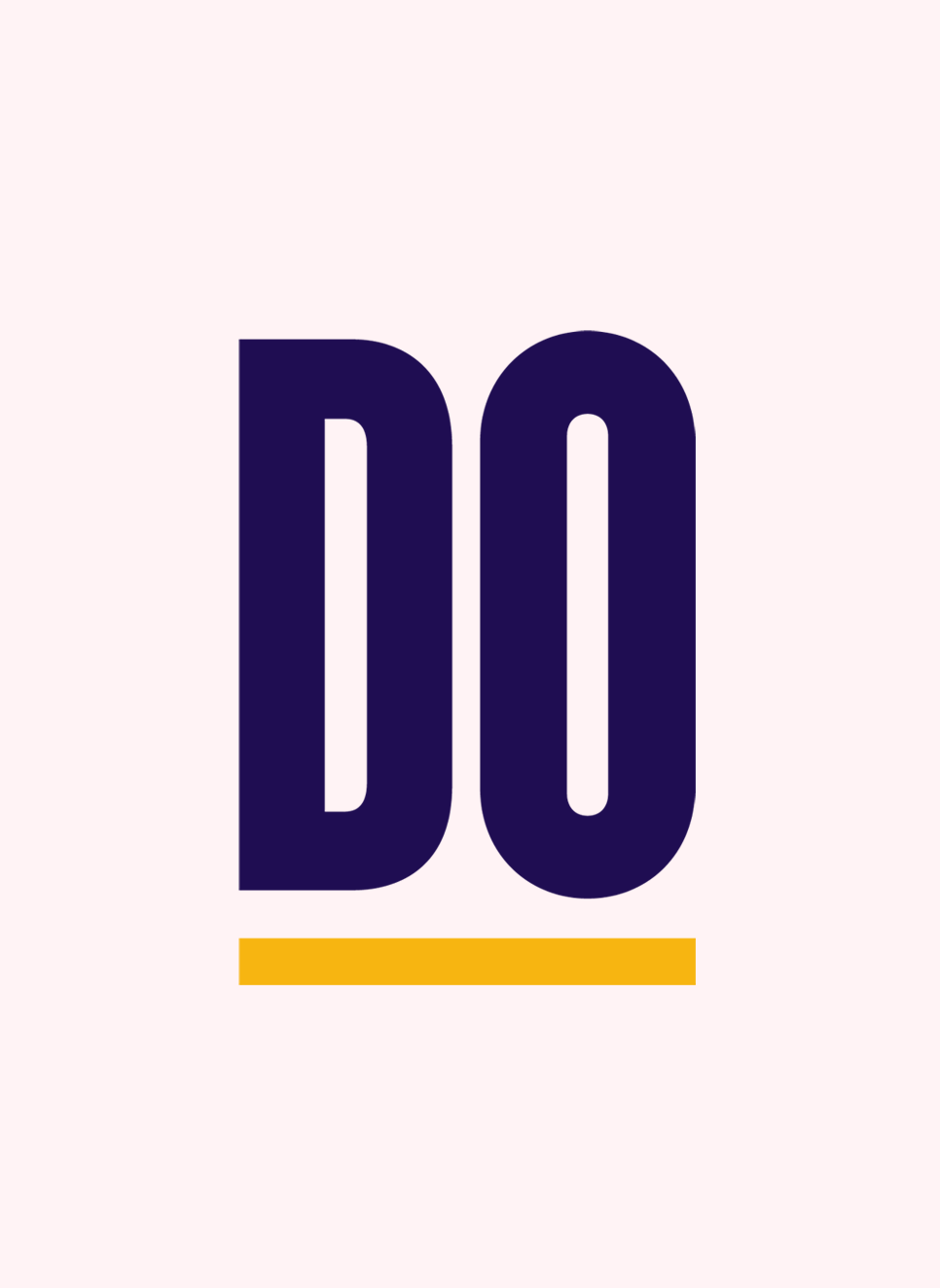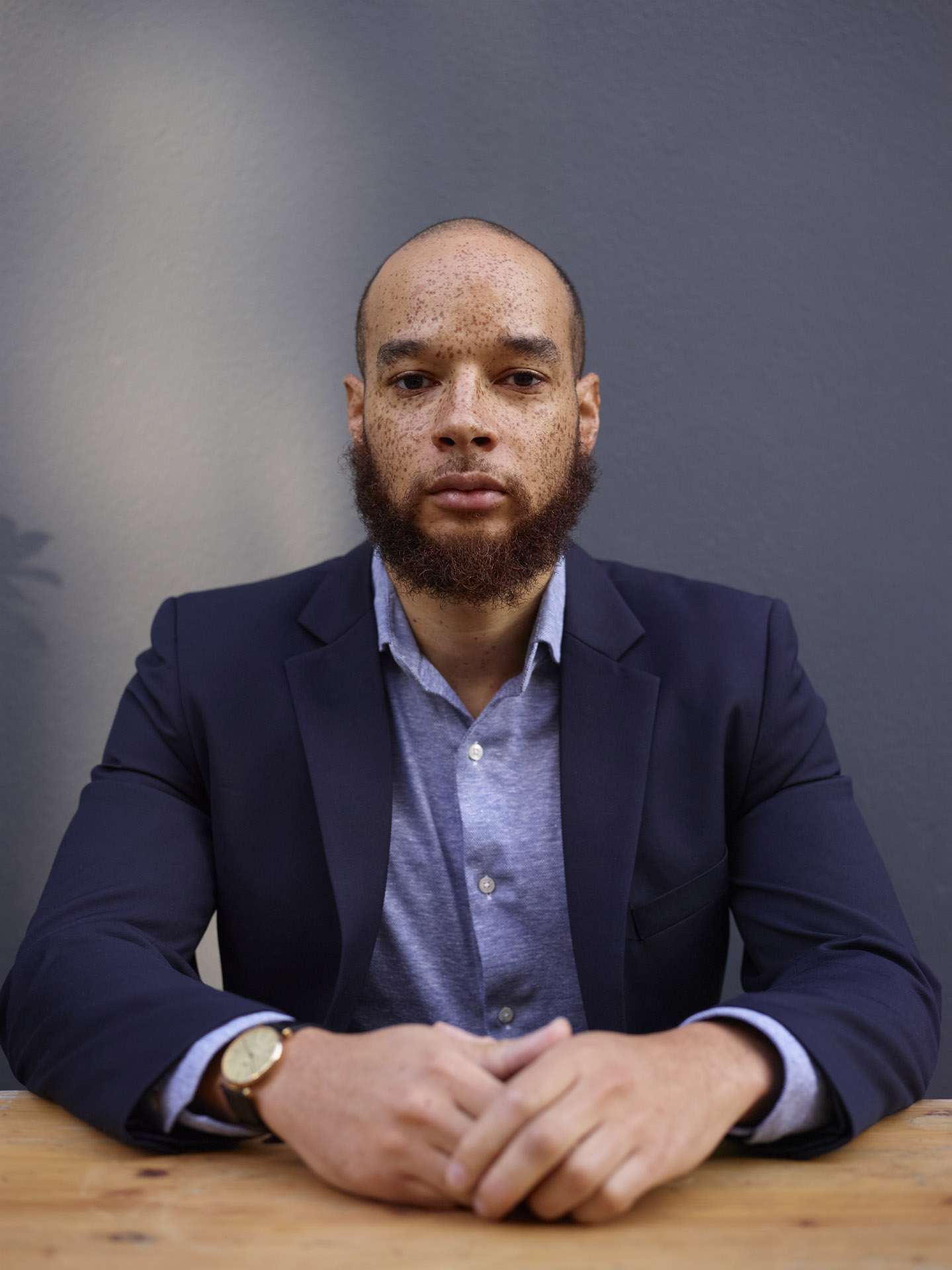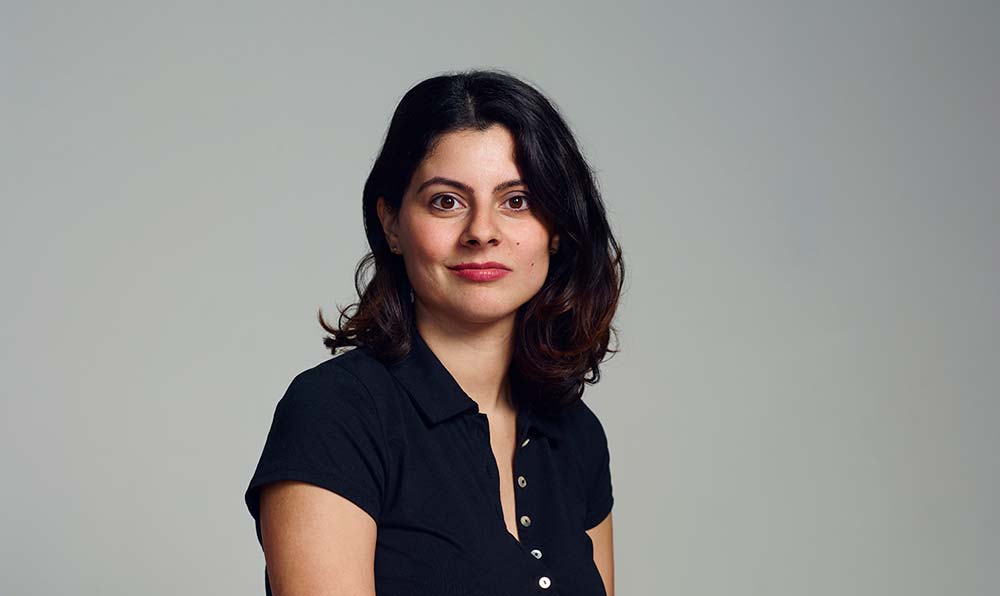Afolabi ↓
“I went to state school in South London. I’m from an ordinary working-class family with a single mum, but my dad was still in my life, so not necessarily the cliché single parent family. I did well enough at school to get into Cambridge University. On graduating, I started to understand the other elements that determine success in British society, and the barriers to entry in certain careers…
I couldn’t really understand why I wasn’t getting the opportunities that I expected, because I had a good degree from a good university. I saw, for example, how you’re able to do voluntary work or unpaid internships when you have the economic support behind you that allows you to work for free, compared to someone who doesn’t…
A somewhat obscure family connection offered me a role as a trainee accountant under him. Whilst I was working for him he educated me on a lot of the different soft skills such as: networking. He advised how to access careers in certain professions, and what is required to get ahead once you’re inside, which may not solely relate to ability and performance. Part of the problem is access and gaining opportunity, but then there’s also progression. That’s still weighted against people from certain underrepresented backgrounds. The drop-out rate of people who come from ethnic minorities, state schools, women, is higher in the big, elite professions like finance, media, law, etc.
I started a charity called Key Sessions alongside my friend from university who works for the BBC; he did a documentary, ‘How to Break into the Elite’. which addresses these issues”. Our charity aims to provide inspiration and insight into elite professions to students from underrepresented backgrounds.”
To jobseekers – “A lot of people are willing to help, but it’s about being brave enough and assertive enough to ask.”
Have clear aims and understandings, “I have these 3 questions, this is what I need to come away from this meeting knowing.”
Deeba ↓
“I’m a discrimination lawyer, but it took me a very long time to become a lawyer, and I think that’s partly to do with my background. But I’m here!
You have to go to law school, and you have to get a training contract from a law firm. Getting the training contract part is the hardest bit. Law firms are very white, middle-class; they want a certain type of candidate and if you deviated from the school, university, law firm path, they’re very skeptical. I went back and did extra A levels – this is when I was like 25 – because I felt like I had to compensate so much with exceptional grades. I smashed that extra A level, but it didn’t seem to matter. I’ve got a Muslim name and a learning difficulty, I felt like on paper, I wasn’t good enough. I felt like I had to jump through so many more hoops than everyone else. I did all the extra-curricular stuff and more! You have to go to these law firm events where you meet these trainee lawyers who are like, “I was in the rowing club and then bam, I got my training contract, no problem”. That was all it took. I’m like, “Mate, I was on the committee of everything at Uni and after, I was organising this, this, this…”, so I didn’t understand why I wasn’t getting in the door. I couldn’t ever put my finger on it, but I think I knew deep down what was happening. I was just being overlooked again and again. That’s why traditionally nothing gets done about [discrimination in the job market], because you can’t prove it. I worked so hard to get there, I felt like I had a lot to prove because I had struggled at school too. Some people just float into these law firm, and are like, “I just slipped them an application” and that was it. It just seemed so easy for them because they looked the part and had the right background. There I was like getting up at 5 in the morning to work on my law firms applications and nothing. I was militant about it. I threw my entire life into it, so I didn’t understand why I wasn’t getting further. I guess I thought effort equals success, but that’s so not the case. It took me 3 years to get my training contract, and the only reason I got it was because it was a training contract for people who are disadvantaged in some way.”
To jobseekers – “I know you would think that having a chip on your shoulder is a bad thing, but it gives you drive. It gives you motivation. I worked hard to get here, so I don’t want to pull up the ladder for anyone behind me. I want to give a ladder to somebody, just like people did for me. Ultimately, whatever seems bad at the time, discrimination, stereotypes, failure, so long as you turn it into something good, then it was a good thing that happened to you. It’s all about what you make of it.”
Gabriela ↓
“I was born and raised in Italy, but my parents are from Ghana and Nigeria. Growing up, my background wasn’t really an issue, it started here in England. I studied English literature as my bachelor’s, and then for my master’s I went for public relations. But I’m not in PR, or an English teacher right now! I actually ended up becoming
a blogger.
I didn’t manage to find a job within traditional routes for a long time. I thought that my background was affecting my chances. My feedback would always come back saying I was great, I was amazing and had all the right skills that they were looking for, but apparently I wasn’t the right fit for that team.
I’d think, “Really? I’m not the right fit for the team?” But my storytelling abilities come across and my writing style is impeccable? There’s something not right. Especially when you go through not one, not two but three or four interviews, you can actually taste it. I thought it was my background. At the same time, an interview is literally the way you come across and about clicking with the right person and being there at the right time with the right person. I did an interview for a role that was designated for someone from a BAME background, and I had the exact same feedback. I guess I am not always the best and I can’t find a way to become the best!
That’s why I created the blog, and the blog has allowed people to come to me instead of me going to them. Content creation became my outlet and my way to make a living without compromising myself.”
“If you give yourself six months to find a job and if you still can’t find one, don’t beat yourself down, find a solution that suits you. Instead of looking for something to happen, I made something happen.”
“At the end of the day, your voice is your own and the more you try to become similar to others to make yourself accepted, the more that’s going to affect your own understanding of yourself. When you are female, black, it’s arguably not always the best option in life. That’s not something you can hide! Once you’re born, you’re black! You’re female! You just need to take the bull by the horns and ride it.”
Joshua ↓
“I’m from Charlton, in South East London. When I was in secondary school, I got involved in robberies and knife crime, stuff like that… I got arrested [and] was given an Intensive Referral Order. I was planning to breach it, thinking, ‘This is long’, but a few months down the line, I realised that I didn’t want to go back to my old lifestyle, because you only end up in one place.
My case manager got me in to volunteering with a charity who work with vulnerable people. Once I did that, I started to learn what the effect of what I was doing had on people. My whole mindset started to change…I tried to give something back, so I did presentations on gang culture and gun crime to the North Kent Youth Offending Team. They were all pretty impressed! Once I did that, I started to build confidence in myself. I realised I can actually teach people to learn from my mistakes.
The head of youth justice in Kent decided to make an apprenticeship role for me because she saw all the things that I was doing. Now I’m helping people who are where I was, see where I am now.”
For jobseekers – “There’s always another way. Even for me, not having the support around me all the time. My mum used to work 12-hour shifts and my dad wasn’t around, so it was just me. It’s about finding a way to help others and fulfil your potential. It’s okay not to fit in a crowd, you don’t need to have everything now, it can always come later. If you have a faith, you can turn to God. If you want to get into sport, you can get into sport to seek that support. There’s help everywhere.”
“I felt like, ‘with my record, will I get a job? Is there hope?’, but my case manager assured me that all volunteer work counts as work experience. It showed that I’ve turned my life around.”
“If you want a mentor, get a mentor. There’s people out there who really want to help you fulfil your potential, you just have to find them.”
“Our stories are powerful. Peer Power is a social justice charity that uses young people with lived experience to share their life stories. This empowers other young people to become leaders, and challenges employer attitudes.”
Jonathan ↓
“My name is Jonathan Andrews and I’m an associate Reed Smith, a city law firm. I was diagnosed as being on the autistic spectrum at age nine. My family were very supportive and didn’t see it as me lacking anything but simply having a different way of doing things and thinking. That was part of what gave me the confidence to be able to reach far and focus on my achievements. I found it interesting that there was a lot of talk about support from law firms, but there wasn’t anybody talking about being autistic in law. It felt like there was a lack of representation there.
In terms of actually getting into the legal profession itself, it was quite a long process. I had parents who were very supportive of me but certainly weren’t wealthy or well-connected. It wasn’t like I had the ability to get great contacts or assume that I could walk into a role. I worked very hard at my comprehensive school, Darrick Wood, got good A levels and was the highest-achieving boy in my year; I managed to get into King’s College London because of that.
I began to become aware of different opportunities that were available to me and I applied. English was my favourite subject at school and I really enjoyed my English degree – even managing to have an essay published in a journal – but I was always aware that the academic market in English wasn’t the easiest to get into, or one offering the greatest chances to make a practical difference.
I looked into open days, taster days and internships etc, as the best events to get in front of law firms. I remember the first few times it wasn’t something I was used to, and given my background I was quite anxious about it. But I decided that I could get used to it. I developed resilience and immersed myself in it.
It took me 9-months to get my training contract. I just had to keep pushing at it, basically, and believing that I could do it. There are others who might take longer and more years to do it. I was lucky in that I managed to do it just at the end of the year I applied (they start their recruitment in September and finish it in August), and I think part of this success was because I kept pushing and didn’t give up and didn’t assume that I wouldn’t be able to do it because of my background. I just thought that the right time hadn’t come yet, so I kept pushing and pushing.
Now, it’s been really fantastic because I’ve had a great experience at Reed Smith. During my training contract I had 2 seats in media (including a secondment) and now I’m actually qualified in the media team, which was my first choice there. It’s a top-rated firm for media, and there’s no question of me not being hired because of my background because I’ve been up against – throughout the process – people from more privileged backgrounds, and managed to get the job and get my associate role. I’ve got it on merit, basically, because I was the best person for the role.”
For employees – Believe in yourself. Understand that it’s not the fact that you can’t do it, it’s that they just didn’t want you at this particular time or you’re not the right one for them. Use the experience positively, to make sure you put your best foot forward next time and increase your chance of future success.”
Lauren ↓
“I’m white, British, and I’m from Dagenham. I finished college in the summer this year, and I wanted to have a little bit of a break before I started a full-time job.
I could’ve gone to uni, but it’s never really been my plan. Never really been what I wanted to do. I hated going to college. I finished it, I did it and got my A levels, but I did it. I’m working in a pub at the moment. It wasn’t hard to get a job in a pub but trying to get an apprenticeship…Obviously, the way I talk is so different from anyone. I’m not university educated. I went to a group interview and everyone around me was really posh. You do feel really out of place sometimes. In some way, it does make you stand out, but not always for the best.
On my CV, I actually used my dad’s postcode, not where I live. He lives in Emerson park. A lot nicer area than where my mum is in Dagenham. I hadn’t really thought about it before but writing down a CV, I’d rather make myself look the best I can, so I use my dad’s address.”
Claudine ↓
“I am a lawyer, currently on sabbatical and running a business. We’re developing a platform to help young people, particularly those from less privileged backgrounds, with advice, insights and access to opportunities.
I left home at 16 and was staying in hostels and B&Bs, things like that. I was in a position where I didn’t really know any other professionals or anyone who had been to university, so I kind of had to figure it all out for myself.
The process of doing applications was very new to me. I had done part-time work since 15, but not in any corporate environment. I got support from Kids Company who gave me a mentor who’s a barrister, who helped me with my application forms. Without her support I wouldn’t have been able to do it. With strong academics and the support to figure out how to approach applications, I managed to secure a couple of training contract offers.
I have distinct memories of feeling completely out of place because of my background and not knowing about different wines and Michelin star restaurants and things like that. It took a lot of adjusting and… still feeling imposter syndrome cropping up every now and again.”
To jobseekers – I believe that ability is nothing without opportunity. But you can create your own opportunities. It’s just about thinking outside of the box and trying to do things a bit differently, and grasping opportunities when they do come up.
Bukola ↓
“I’m an actor. I’m currently studying at university, drama and performance. In my last job, I felt more confident in speaking up and saying things because of acting.
My first ever job was in a restaurant. It was shit. After that I wanted something different, maybe retail or business, but it was so hard to get a job from there.
I spent probably the whole summer searching and applying for jobs. It was always like, ‘You have no experience, you’re not right for this job’. I think I applied for about 200 jobs. I got one or two interviews but it didn’t go further. A lot of places didn’t get back to me at all.
It got to a point where I was applying constantly and not one company even wants to give a phone call and so I started to think, ‘Does my CV screams ‘too much’?’ I thought maybe it was my name, so I shortened my surname. I used to put, ‘African/British’ on it. I think that’s kind of to do with me wanting to be an actor, that I always want to be showing myself, what makes me different from the crowd and why you should pick me for this role. But I took it off too. I thought too much of my personality was on there when maybe they just want someone to do a job.
I got the job at Tesco that I interviewed for, but it was so draining for myself as a person, I felt like I lost myself a lot. That was the one time I changed everything: I just wanted another job, I didn’t care if I had to turn to societal norms, I just wanted a job.
To jobseekers – Life is always going to rattle you and get you down, it’s the aftermath, how you pull from it.
Soraya ↓
“My name is Soraya Adejare, I’m a resident of Hackney. My surname is very clearly Nigerian. I’ve seen people go, ‘Oh!’, as in, they were expecting someone else and then I turned up. In my mind I’m already thinking, ‘What perception of me did they have before I’d even come in?’
My personal belief is that all CVs should be anonymised, there should be nothing that gives a hint towards your age, where you’re educated, your ethnicity, your disability. That should not be included in a stand-alone application process. The year someone got their GCSEs in, the year they got their A levels in, that already leads to a barrier in terms of age discrimination. I think everyone is under financial strain so they’d rather have someone straight out of college who they can pay less, as opposed to somebody who’s been in the market for a while and who they’d probably have to pay a little bit more. But I’m here because I feel like I could bring something to this job!
There used to be a way that you could work your way through certain routes for employment, but I think those are becoming more closed off for some people. Particularly if you’re not a graduate.
When I see the applications, “Graduates only”, I think to myself, “There’s so many people that bring so many different things to the employment market which you’re automatically dismissing. In one fell swoop, you’ve just wiped out a whole load of people who would bring something to your job and you’re just not interested in even considering them. You decided that, because I haven’t been to university, I would be less effective.”
For employees – I’ve learnt not to be deterred. Be self-affirming. You know within yourself what you’re capable of.
Kimani ↓
“I’m from Edmonton and I work in banking. I was affected by hiring discrimination when I ‘started’ my journey, when applying for work experience & internships in various sectors. But I haven’t experienced it at all at my current bank.
I believe hiring discrimination has affected me because I may not be as polished as other applicants and I may not speak the same way as other applicants. Coming across in a business setting, this may not always be the thing that the business wants.
I would emphasis that I don’t feel imposter syndrome as much, but over time it will disappear as I gain experience. I also think that a lot of people aren’t fortunate to meet people and go to places outside of their comfort zone, so they do not always develop this confidence which I have gained over time.”
For employees – I feel that you can come from anywhere and get anywhere. It’s about you as a person.
I might not have dressed the best or spoke the best, my grades weren’t always the best, even though I did well in the end. But people skills get you very far. It’s not always what you know, but how you say it sometimes, and who you know.
All the life experiences that you’ve had make you richer, they bring a different dynamic to the workplace.
Juliet ↓
“My name is Juliet, and many people know me as the African Wonder Woman. I’m from London, Islington, and my background is Kenyan. I’m a proud African woman!
I’m looking for jobs and… yeah, I’m still looking. The process is sometimes very ad hoc, especially when you have a disability. I think more support for people with disabilities is needed. That is something I feel the government needs to take up, and especially give better opportunity to persons with disabilities, and work and enhance their careers, and support them in a very positive way. I believe that opportunity for all is something that many people wish for in this current climate. With the Brexit issues, you can see the rise of Xenophobia, the rise of migrants being told to “Go back home”, and words like that can be quite upsetting. I think that the issue of migrants is… everybody is a migrant, so I welcome the situation to say that we are all global citizens.
I was talking to this gentleman a few weeks back. This guy has good skills for bricklaying. He said to me, ‘The reason I can’t get a job is because I don’t have an address’. At the time, I just thought, ‘Can’t you just use a friend’s address?’, but I realised that many people are scared these days to give anybody an address to use, because of all the bureaucracy. Most of these people are on the street because either they’ve fallen out with their parents or family or had a breakdown. This man who is well-qualified, but because he doesn’t have an address, he is unemployed. I think that is sickening.
We need more support.”
Kohginy ↓
“I recently graduated from De Montfort University with a business degree. I’m working, but not in the field that I wanted to work in…I didn’t know that [coming from a disadvantaged area] would affect my ability to get a job, but now I’m finding out that it might.”
For jobseekers – Take all opportunities , everything you can. That was my mistake – turning things down. Especially after university, companies do look at extra-curricular activities. You have to learn as you go to sell yourself. Try as much as you can to network, to find people who actually care about your progression.
Lisa ↓
“My name is Lisa Leach. I’m half Nigerian and half English. I grew up in Nigeria until I was about 17. I was back and forth a lot when I was a kid. For work, I’m merchandise manager at a marketing company. I also model on the side and run my own events company as well.
I grew up in Nigeria and I think my dad made a priority very early on that I was put into an international school with a lot of teachers with mixed backgrounds. I had friends that were Malaysian, Nigerian, Cambodian, Indian. We were created this bubble of, ‘This is what the world is like. Everyone’s accepting and everyone’s mixed up’. That was a great start for me. It wasn’t until I moved to England that I realised my ethnicity played a factor in achievement or the way you were viewed in the world.
The world outside of me made me aware of my ethnicity. I think, going into the workplace, straight out of university, I didn’t think about it at first. I was applying for all these roles and it was fantastic. I was trying to decide what I wanted to do workwise.
Then I applied to a company who I think, because of my name and the way my CV is written up, assumed that I was a white female who had parents that lived abroad and came back to England. Lisa Leach is a very English name, I think. So, I went for the interview, and I remember the security guard was a black guy. He gave me a look of, ‘Are you in the right place?’. At first, I didn’t think anything of it. I sat down and he said, ‘Who are you here to see?’. I said it was for HR and he asked me to sit down. This lady came downstairs; blue eyes, blonde hair, and looked all the way around the room but completely looked past me. She said to the guy at reception, ‘I’m looking for Lisa Leach, she’s here for an interview’, and the guy pointed at me. She looked round and was like,
‘…Oh! Oh okay. Come with me then’. It was literally that reaction. It was a group interview, and everyone else in the room was white. It was just me. That’s when I thought, ‘My background and how I am perceived definitely plays a part in what employers want’.
I’ve had it on the flip side, and I think I fit a quota. If it’s an organisation that prides themselves on having people of mixed heritage or black heritage or diversity, they see me as a ‘get out of jail free card’. It’s like, ‘If we put her in front of a client on the phone, she sounds white, she’s got a white name, this works for us’. I tick the box internally of someone of mixed heritage or black heritage. Sometimes it does play a negative role but sometimes I think there are opportunities that are given to me because of it. That’s something I’ve always felt unsure about, because it’s great that I get the opportunity, but do I get them off my own back? Or do I get them because I make life easy for you and I tick a box? I think that’s my experience so far. Quite a long-winded experience! Going from, ‘It’s not played any impact whatsoever!’ to, ‘Oh! Now it’s something I need to be very aware of’…
After my first experience, when I would then apply for jobs, I was aware of what my CV said of me. I started to look at my CV, like, ‘What is this saying about me?’ Because before people even speak to me or get a visual representation, this is what they see. This is what I’m judged from. I went through a phase of, ‘Do I edit it? Do I want to appear more black? Do I want to appear more white? What do I want to do with this?’ Then, I think I got to a point where I was like, ‘If an organisation is going to judge me based on these factors, do I actually want to work there anyway?’. So, I just stuck to,’This is who I am. Take me for what you want or don’t!’”
For employees – As hard as it is, try and stay true to who you are. You spend most of your time at work so putting the work into finding the right organisation is important.
Toyosi ↓
“My name is Toyosi Agni, I’m studying health and social care level three at the moment.
When I was applying for a job it was a bit difficult because I sent my CV a lot and I wasn’t hearing a response from them. Nothing. I had to walk into the company myself to get the employment paper so I could fill it out. All the CVs I sent online; I got no response from them. I don’t even know the reason why.
Actually, most of the interviews I’ve attended weren’t bad. Recently, when I got the job I’m working at the moment, the interview was okay because the interviewer was really nice.”
For employees – When I was doing my interview, they said, “I love your courage, I love your opinion”. It’s important to be yourself.




















